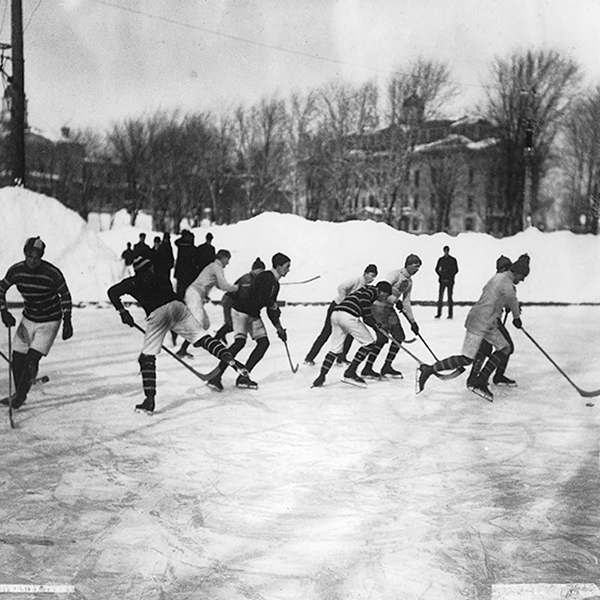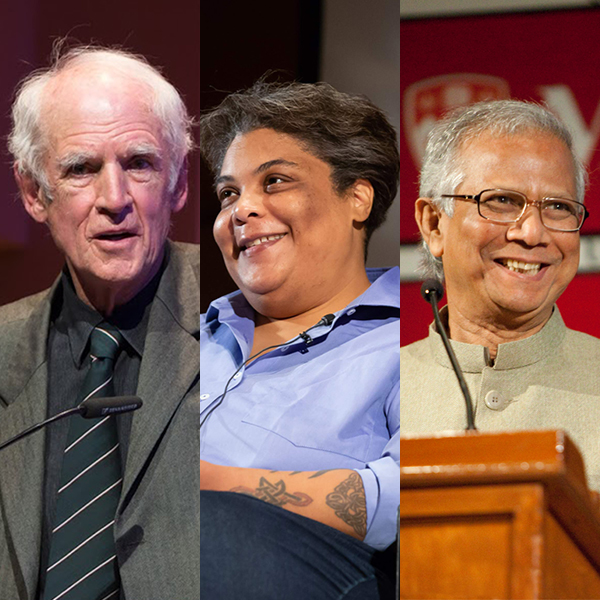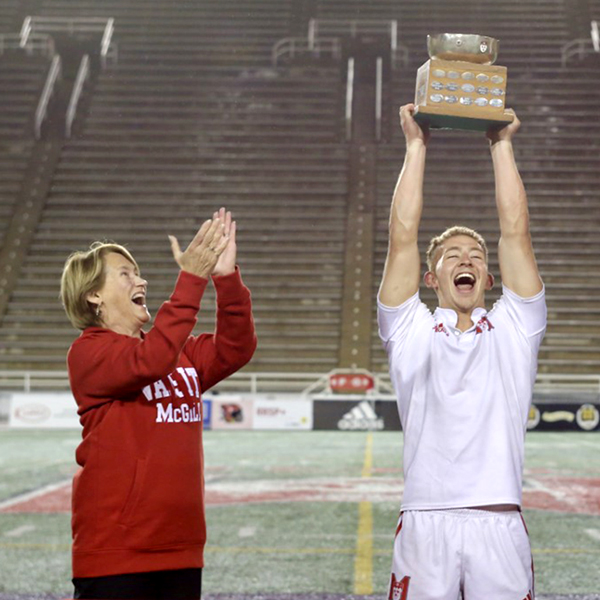Several household names have visited McGill as speakers in the Beatty Lecture series since it began in 1954; Margaret Atwood, Francis Crick and Mikhail Gorbachev come to mind. However, the namesake of the lecture, Sir Edward Beatty, isn’t quite so well known.
Robin Koning, a digital marketing and outreach associate in the Office of the Vice-Principal (Research and Innovation), has been busy for months preparing to shine a spotlight on the history of the Beatty Lectures – the oldest public lecture series of its kind in the country – and on Beatty himself. The lecture series marks its 65th anniversary this year.
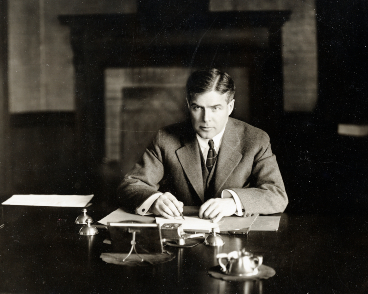
Beatty (left) held two major positions, more or less concurrently, in the first half of the 20th century: McGill’s chancellor (1920-1943) and president of the Canadian Pacific Railway (1918-1943).
“He was running the world’s largest transportation system – because, at the time, the CPR was huge,” says Koning. “He didn’t have children, he didn’t have a family – the saying is that he married the CPR.
“He was [also] a very hands-on chancellor. So it’s really wonderful that this lecture series is still named in his honour, even though many people probably don’t remember who he was anymore.”
An endowment from his brother after Beatty’s death launched the lecture series, with a mandate to bring international figures to the University. “The principal at the time was F. Cyril James and he led the Beatty Lectures,” says Koning. “He was the one who would try to find the best lecturers in the world.”
The first Beatty Lecture, presented by India’s first vice-president Sarvepalli Radhakrishnan, took place on October 4, 1954. British author and economist Barbara Ward, an expert on the challenges facing developing countries, became the second Beatty Lecturer in 1955.
In the Beatty Lectures’ early years, “they had to use to use the Currie Gym [as a venue] because there were thousands of people that would want to go,” says Koning, who spent months researching the history of the Beatty series for a digital archive project.
As was typical in those days, the guests often traveled by steamboat from their home continents, and stayed in Montreal for a month. Over the course of their visit, they would frequently deliver three unique lectures, and attend seminars to meet students and faculty and discuss their work.
The traditionally extensive visit of Beatty lecturers was shortened in the 1970s, when the evolving nature of long-distance travel made it easier for visitors to come and go. (It was also becoming more difficult to convince prominent figures to commit to an entire month on campus.)
The series has consisted of a single lecture since then, although speakers often engage with the McGill community in other ways (2018’s Beatty Lecturer, noted feminist author Roxane Gay, sat in on a seminar class with graduate students the day after her talk).
Beatty Lecturers over the years have included novelists Saul Bellow and Margaret Drabble, palliative care pioneer Dame Cicely Saunders, neurologist and author Oliver Sacks, evolutionary biologist Richard Dawkins, famed physicist Richard Feynman, tennis legend and AIDS activist Arthur Ashe, and Nobel Peace Prize winners Shirin Ebadi, Wangari Maathai and Muhammad Yunus.
Some years have had multiple lecturers, so there have actually been 89 speakers over the course of the Beatty’s history. That means there has been a whole lot of Beatty content over the years – and that’s where Koning comes in.
Using archives at McGill, the University of Toronto, and the CPR, she has been sifting through decades of primary source material related to the history of the lecture series and to Beatty himself. The end goal of her work is to tell the story of the Beatty Lectures through the new Beatty Lecture Digital Archive, as well as a through a curated exhibit of archival material, both of which were launched on September 16.
“The McGill Archives literally has a treasure trove of archival material from these lectures,” says Koning. She and University Archives archivist Frédéric Giuliano are the co-curators for “With the world to choose from”: Celebrating 65 Years of the Beatty Lecture, an exhibition in the McGill Archives (fourth floor of the McLennan Library Building) that will run until October 31.
While much of the lecture series was well-documented in the form of audio-cassettes, Koning’s first order of business was to digitize them in order to preserve their invaluable information.
“We have a lot of those really pivotal, early eighties lectures, and all the lectures from 2004 to the present day are already on YouTube.” It’s the time in between that’s more difficult to track down; despite having transcripts of many of the lectures that took place during this gap, Koning is still on the lookout for any recordings that may still exist – for instance, on one of the five dollar audio-cassettes that were once available for purchase by those in attendance.
Among the recordings, historic photographs, vintage marketing material, and correspondence Koning has come across during the project, one of her favourite finds is a 1954 letter from Canadian prime minister Louis St. Laurent to F. Cyril James, congratulating him on a successful inaugural Beatty Lecture.
Digitizing these resources serves not only to protect them from deterioration – it also transforms them from static, archival objects to dynamic and accessible pieces of history.
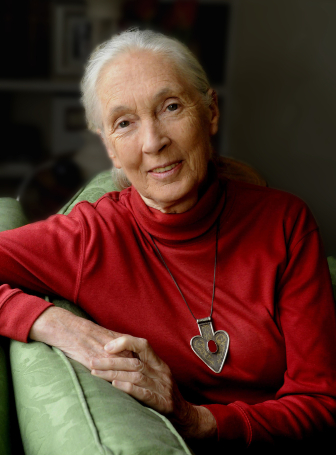
“The most important part [of the project] is to provide students, especially, with these primary resources. I mean, to hear Francis Crick’s own voice talking about his discovery [of DNA] … we want this online, so that anyone in the world can access it.”
To that end, Koning points out the parallels between the goal of the digital archive project and that of the Beatty Lectures, which both aim to make the ideas of great minds accessible to a wider audience.
“[The Beatty Lecture] was before TED Talks. If you wanted to know what these world thinkers were working on, it really wasn’t accessible to the common person. This initiative by McGill was actually quite revolutionary at the time.”
To honor this year’s milestone, the organizers have decided to bring back an iconic figure who gave her first Beatty talk four decades ago: primatologist and conservationist Jane Goodall (right), widely considered to be the world’s top authority on chimpanzees.
“There was some really fun correspondence with Jane Goodall to the principal at the time [of her first Beatty Lecture]” says Koning. “This was a young Jane Goodall, before she was quite so famous, and she was like, ‘I hope that the students are going to find my lecture interesting.’ And then it went on to be this incredibly successful lecture.”
Goodall was pleased to discover that McGill still had an audio recording of her 1979 Beatty Lecture. “She requested a copy of it for her own personal archives.”
